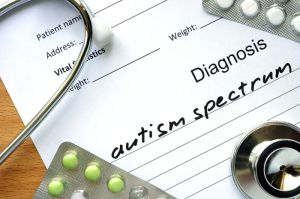por
Lauren Dubinsky, Senior Reporter | April 21, 2016
Physicians and scientists in Japan and at Brown University have developed a computer algorithm called a “classifier”, based on functional MR (fMRI) brain scans, that may detect autism. A study investigating the algorithm was recently published in the journal Nature Communications.
“Abnormalities in the brain connections are just recently proposed to be useful for diagnostic purposes, but there are some controversies for that too,” Yuka Sasaki, co-corresponding author of the study and research associate professor at Brown, told HCB News. “Usage of brain imaging data is still new in the field and under debate for possible diagnoses for psychiatric disorders.”
The conventional way to diagnose autism is with the Autism Diagnostic Observation Schedule (ADOS), which is based on physician interviews and observations of the patient’s behavior, instead of using markers of biology and physiology.



Ad Statistics
Times Displayed: 60070
Times Visited: 5271 MIT labs, experts in Multi-Vendor component level repair of: MRI Coils, RF amplifiers, Gradient Amplifiers Contrast Media Injectors. System repairs, sub-assembly repairs, component level repairs, refurbish/calibrate. info@mitlabsusa.com/+1 (305) 470-8013
The researchers developed the classifier with 181 adult volunteers at three sites in Japan and then applied it in a group of 88 American adults at seven centers. They found that the classifier had 85 percent accuracy among the Japanese volunteers and 75 percent accuracy among the American volunteers.
The research team also investigated whether the classifier can determine the similarities and differences between autism spectrum disorders and other psychiatric disorders. In a genome study, autism was found to have some similarities with schizophrenia, but not with depression or attention deficit hyperactivity disorder (ADHD).
The classifier found moderate, but statistically significant accuracy when differentiating schizophrenia patients, but not depression or ADHD patients.
The MR procedure that the study participants underwent was only 10 minutes long, and they didn’t have to perform any specific tasks. But even though the procedure was easy and the classifier shows promise, it’s still not ready for clinical use.
The researchers aren’t yet sure how it will work among children, since all of the study participants were adults. As the classifier’s accuracy continues to be improved, the researchers are hoping that it can also be used to monitor whether therapies cause changes in brain connectivity.

